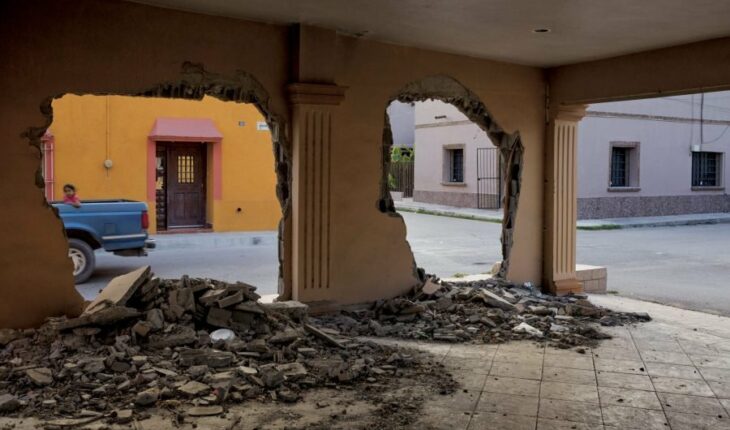Silvia Garza Villarreal, 40, fled her hometown of Allende, Coahuila, more than a decade ago. With his family in the zetas’ crosshairs, he left for Eagle Pass, Texas, in the United States, on Monday, March 21, 2011, when hitmen from the criminal group broke into the municipality and began a massacre that would last for more than a year. Currently, up to 17 members of his family are missing, including his father, Sergio Garza Garza, kidnapped with his wife and two children in March 2012, one year after the massacre. The betrayal of Los Zetas by José Luis Garza Gaytán, cousin of the displaced woman, made the whole family a target.
“When I left, we thought we were coming for four days, but then they told us that our names were on the lists of those who were going to kill,” he explains, in a telephone conversation with Political Animal.
Almost 11 years after those events, families of the victims are still waiting for the institutions to fulfill the promises of truth, justice and reparation. In 2018, statement 10VG/2018 was issued. Although popular belief is that there were more than 300 victims, the National Human Rights Commission (CNDH) only managed to identify 49. Six judicial processes were opened, including against Omar Treviño Morales, the “Z42”, and 33 elements of the municipal corporation were identified as key pieces in the massacre.
In 2019, there was an act of public apology in which Garza Villarreal took the floor, but none of the commitments had continuity. On the one hand, no family has received the financial compensation, since the expert reports began to determine how much would correspond to each one, but these analyzes were never concluded. On the other hand, the Attorney General’s Office (FGR) assured that it would attract the case, but Political Animal revealed that this procedure was never carried out. In addition, debts begin to haunt survivors: some continue to pay the properties of the houses that the narco snatched and destroyed, and others still have the sword of Damocles of loans requested by the disappeared that were never paid. “They haven’t fulfilled us and three years have passed,” says Garza Villarreal.
Tragedy has haunted Garza Villarreal since those fateful days of March 2011, when Zetas hitmen stormed Allende. “On Thursday they raised my uncle José Luis, father of José Luis Garza Gaytán. They moved on to my other uncle’s side: they took him, his wife, mother-in-law and three children. We got two back, but the baby is missing. On Friday or Saturday, I don’t remember well, they went to my other uncle’s house who lives a block from my house. That day we left and didn’t come back,” says Garza Villarreal, who went out with his sister, brother-in-law and two nephews.
He obtained a work visa in the United States and has been there ever since. He has not heard from his missing relatives again, although he believes none survived. His uncle and the rest who were captured at the beginning of the massacre, it is likely that the hitmen burned them in their own ranch, turned into an extermination center. His father, meanwhile, was intercepted by municipal police officers, who reportedly handed him over to the Zetas.
More than a decade after the Allende massacre, the victims still do not receive their reparations. After the public apology, they held a meeting in Arteaga, Coahuila, with representatives of the federal government, such as the then Secretary of the Interior, Olga Sánchez Cordero, and the Undersecretary of Human Rights, Alejandro Encinas. However, they achieved nothing but unfulfilled commitments. Since then, Garza Villarreal herself has tried unsuccessfully to contact the latter.
The Executive Commission for Attention to Victims (CEAV) should be in charge of carrying out the procedure. Political Animal He consulted with the agency, which said that in February a working table was held with the presence of the victims, in which it was decided that the authorities of the local jurisdiction and the federal jurisdiction would meet to “determine the parameters of the compensations.”
Garza Villarreal, for his part, rejects what was indicated by the CEAV and affirms that it was a plenary session and that there was no progress. Political Animal He also wanted to consult other institutions involved in this process, such as the Undersecretariat for Human Rights of the Ministry of the Interior (Segob) and the CNDH, but at press time he had not received a response.
What we do in Animal Político requires professional journalists, teamwork, maintaining dialogue with readers and something very important: independence.gum. You can help us keep going. Be part of the team.
Subscribe to Animal Político, receive benefits and support free journalism.#YoSoyAnimal





